April 1, 2023
First Existentialist Congregation
Atlanta, GA – USA
smol ensemble (Justin Greene, Olivia Kieffer, Amy O’Dell, Monica Pearce, and Paul Stevens); Moloq (Paul Stevens and Jake Aron).
smol ensemble:
Monica PEARCE: denim
Nancy TAM: Artisan of the Machine (premiere)
Justin GREENE: Thank You, Sir (premiere)
Nickitas DEMOS: small talk (premiere)
Arvo PÄRT/arr. Paul Stevens: Spiegel im Spiegel
Olivia KIEFFER: Team Sports (premiere)
Moloq:
Various selections
Jon Ciliberto | 06 APR 2023
The closing performance of the 2023 SoundNOW Festival — an annual week-long presentation of contemporary classical music performed by Atlanta’s premiere new music ensembles — paired the smol ensemble with the duo Moloq at the First Existentialist Congregation in Candler Park on Saturday, April 1.
The smol ensemble is built on toy pianos and percussion. Their program included four premieres, with three of the six works composed by ensemble members.
New or boundary-pushing music remains a challenge to the classical music world, even with its more welcoming approach to compositions that veer far from the familiar brands of Beethoven, Mozart, and Bach. While some avant-garde music trades on its prickliness, music composed for toy pianos prefers to convert through cuteness. John Cage composed his Suite for Toy Piano in 1948, but it was much more recently that toy pianos became the focus of an entire branch of new classical music.
The subversiveness of the instrument is less stick-it-to-the-man and more light-hearted and gentle self-mocking. And, it is really only a piano in terms of outer (smaller) physical form — the sound produced isn’t hammers striking strings, but rather tiny metal slats or tubes. The toy piano thus “has more in common with the celesta or xylophone than its larger older sibling.”[1]
Once one grasps the percussive profile of toy pianos, their aesthetic function transitions from a novelty to a compositional resource, like any other instrument, with particularities for the composer and performer to explore. Monica Pearce of smol ensemble noted via email, “The unpitched attack and release sounds from the key mechanism are a real treat for the ear and work well with other percussion instruments.” Pearce’s denim emphasizes this further with extensive repeated phrases and tight interaction between rhythmic passages played on instruments with similar voices. The click-loop aspect was reminiscent to my ear of early sampler technology, with glitchy percussive hits fronting each phrase.

Drawing of smol ensemble by Jon Ciliberto.
The combination of two toy pianos with two percussionists was extremely well-balanced sonically, and this brings up an obvious point, sometimes lost when subversive elements lead the way in a composition: how does it actually sound? smol ensemble, in all of the works on the program, presented strong cohesiveness, all the instruments in concert. (Praise too for their engineer, who balanced the wide range of acoustic instruments with the electronic and mic-ed toy pianos.) The relatively narrow range of voices (not much low end) also contributed to pulling things together.
A second aspect of toy pianos opens opportunities for composers: they are not uniformly made and are never very much in tune (including across the keyboard). Detuned or strange harmonies abound.
Spiegel im Spiegel stood out from the program. A very well-known work by (perhaps) the world’s most famous living composer, Arvo Pärt, smol’s Paul Stevens (Albany Symphony Orchestra), with help from Justin Greene, arranged it for the ensemble. Stevens played the melody on a saw, with the accompanying (piano) part split chromatically amongst the rest of the ensemble (toy pianos, glockenspiel, gong, and bar chime). The arrangement was thoughtful and expressive, and included Pearce gently crumpling bits of cellophane and fading in and out a small amplifier, producing gentle waves of static. Olivia Kieffer performed the bass end on a gong. A true sum of parts arrangement, smol transformed Pärt’s work into a meditation on sound itself, while retaining the work’s sense of slowly propulsive motion and inwardness.
Theatricality is another aspect of toy piano music, brought out most obviously as adult performers fold themselves into place in front of tiny instruments. Kieffer (her dissertation includes a toy piano chamber music database) wrote Team Sports! for all five performers on toy pianos with tambourines. A densely written piece on single lines, it also had the performers abruptly breaking off to stand up and play recorders and slide whistle in a loopy tune, shouting in unison spelling out S-M-O-L-E-N-S-E-M-B-L-E! Later, Stevens reveals team smol baseball caps, and solemnly hats all the players. Altogether, a bit Marx Brothers to me, again underscoring serious musicians having fun with music.

The members of smol ensemble in performance. (credit: Nick Demos)
Kieffer mentioned to me the ensemble’s preparation for a program with so many new works — the group, who live across the country (and Canada), gathered for a kind-of artist’s residency at O’Dell’s home for two days prior to the SoundNOW festival, intensely working through the pieces.
Atlanta composer Nickitas Demos described his composition small talk as an expression of the experience of small talk at a party. With that preface, I expected more in the way of random, disjointed, and even vapid phrases. Instead, the piece was highly thematic and organized, with developed motifs and even harmonic exploration. The latter is a bit of a roll of the dice with toy pianos, and did express well the slightly dissonant aspect of a roomful of conversations. Very ably played, the piece gave the ensemble a chance to shine in a different way, working through a tight and somewhat muscular composition.
I especially appreciated the personal and political underpinning of the purely musical in Justin Greene’s Thank You, Sir, a piece derived from the composer’s experience working in the service industry in a top-shelf restaurant in Birmingham, Alabama. Greene described the awkwardness and incongruity in “performing” the role there and having to suppress identity in the process. Composed for all performers on tiny plastic mouthpieces (from kazoos?), with the performers distributed all around the room, it moved through frustrated and plaintive cries, buzzes, and chirping: a purely sonic experience, yet suffused with authentic emotion. The white plastic bits in the performers’ mouths almost resembled strange false teeth, an awkward costume that re-voiced each individual.
After a costume change, Stevens was joined by his partner in Moloq, Jake Aron, for a closing set of playing all new unrecorded material: high energy, dense ideas, Arabic electro-pop, Kraftwerk, and progressive art-rock. Moloq performs again at the Earl in Atlanta on Thursday, May 11. ■
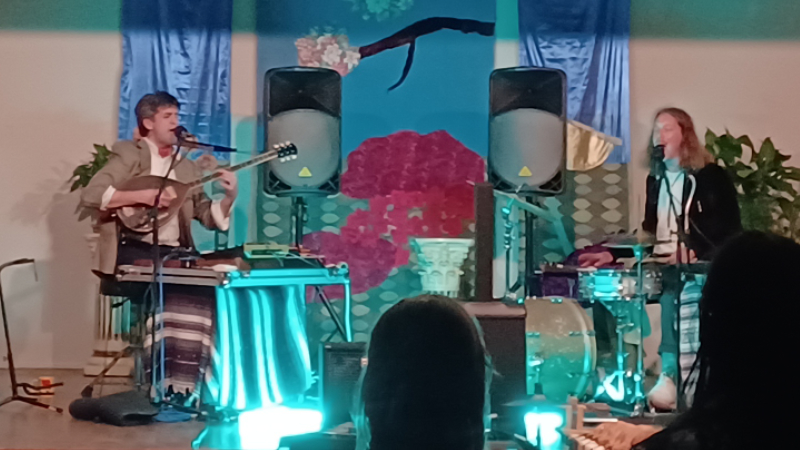
Moloq. (credit: Jon Ciliberto)
EXTERNAL LINKS:
- [1]: The Artful Toy: Toy Piano Influencers and The Making of an Album | Ju-Ping Song, New Music Box, 4 DEC 2019
- SoundNOW Festival: atlantasoundnowfestival.com
- Monica Pearce: monicapearce.com
- Amy O’Dell: soundcloud.com/amy-lynn-odell
- Justin Greene: justinpgreene.com
- Olivia Kieffer: oliviakieffer.com
- Moloq: moloqmusic.com

Read more by Jon Ciliberto.
RECENT POSTS
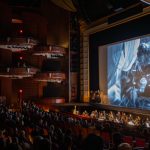 The Atlanta Opera conjures a night of enchantment as Glass’ score reawakens Cocteau’s ‘La Belle et la Bête’ • 20 Nov 2025
The Atlanta Opera conjures a night of enchantment as Glass’ score reawakens Cocteau’s ‘La Belle et la Bête’ • 20 Nov 2025 Jan Lisiecki on discipline, performance psychology, and programming for his Spivey Hall recital • 17 Nov 2025
Jan Lisiecki on discipline, performance psychology, and programming for his Spivey Hall recital • 17 Nov 2025

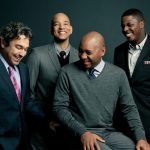
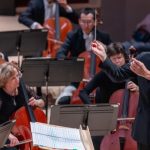
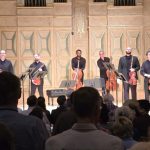
.png)